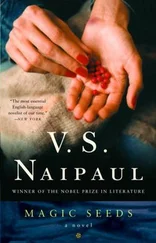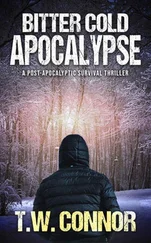BITTER SEEDS
Ian Tregillis
I am deeply indebted to my friends, colleagues, and mentors in the New Mexico Critical Mass Workshop: Daniel Abraham, Terry England, Ty Franck, Emily Mah, George R. R. Martin, Vic Milan, Melinda M. Snodgrass, Jan Stirling, S. M. Stirling, Sage Walker, and Walter Jon Williams. Without their passion for this project, I would never have attempted it; without their support, wisdom, and good humor, I could never have finished it. The weaknesses herein are mine and mine alone, but the good bits belong to Critical Mass.
I am likewise grateful to my companions at the 2007 Blue Heaven workshop for their excellent feedback on portions of this novel: Paolo Bacigalupi, Tobias Buckell, Rae Dawn Carson, Charles Coleman Finlay, Sandra McDonald, Holly McDowell, Paul Melko, Sarah Prineas, Heather Shaw, Bill Shunn, and Greg van Eekhout.
Thanks also to Mike Bateman for his peerless mastery of the whiteboard; Mark Falzini for sharing his wonderful collection of research materials from the Imperial War Museum; Char Peery, Ph.D., for critical reading and the lore of weird linguistic experiments in antiquity; Robert Bodor, Sam Butler, Brad Beaulieu, and Toby Messinger for critical reading; and B. K. Dunn for patient advice on German.
My agent, the fabulous Kay McCauley, has supported my efforts with zeal and confidence from the very beginning. Thank you, Kay, for believing in me and believing in this tale.
I'd also like to thank my editor, Patrick Nielsen Hayden, for his enthusiasm for this novel, and for making it far better than it would have been otherwise.
Zoe Vaughter knew I'd become a writer long before I did. She's the best cheerleader anybody could wish for, and better than I deserve. I'll never be able to thank her properly for her unwavering faith, support, and patience over the years. Mere words will never be enough.
Behold ye among the heathen, and regard, and wonder marvelously: for I will work a work in your days, which ye will not believe, though it be told you.
—Habakkuk 1:5 (KJV)
There are no great men, only great challenges that ordinary men are forced by circumstances to meet.
—Admiral William Halsey
Behold: I give you the Overman.
—Friedrich Nietzsche

23 October 1920
11 kilometers southwest of Weimar, Germany
Murder on the wind: crows and ravens wheeled beneath a heavy sky, like spots of ink splashed across a leaden canvas. They soared over leafless forests, crumbling villages, abandoned fields of barleycorn and wheat. The fields had gone to seed; village chimneys stood dormant and cold. There would be no waste here, no food free for the taking.
And so the ravens moved on.
For years they had watched armies surge across the continent with the ebb and flow of war, waltzing to the music of empire. They had dined on the detritus of warfare, feasted on the warriors themselves. But now the dance was over, the trenches empty, the bones picked clean.
And so the ravens moved on.
They rode a wind redolent of wet leaves and the promise of a cleansing frost. There had been a time when the winds had smelled of bitter almonds and other scents engineered for a different kind of cleansing. Like an illness, the taint of war extended far from the battlefields where those toxic winds had blown.
And so the ravens moved on.
Far below, a spot of motion and color became a beacon on the still and muted landscape. A strawberry roan strained at the harness of a hay wagon. Hay meant farmers; farmers meant food. The ravens spiraled down for a closer look at this wagon and its driver.
The driver tapped the mare with the tip of his whip. She snorted, exhaling great gouts of steam as the wagon wheels squelched through the butterscotch mud of a rutted farm track. The driver's breath steamed, too, in the late afternoon chill as he rubbed his hands together. He shivered. So did the children nestled in the hay behind him. Autumn had descended upon Europe with coldhearted glee in this first full year after the Great War, threatening still leaner times ahead.
He craned his neck to glance at the children. It would do nobody any good if they succumbed to the cold before he delivered them to the orphanage.
Every bump in the road set the smallest child to coughing. The tow-headed boy of five or six years had dull eyes and sunken cheeks that spoke of hunger in the belly, and a wheeze that spoke of dampness in the lungs. He shivered, hacking himself raw each time the wagon thumped over a root or stone. Tufts of hay fluttered down from where he had stuffed his threadbare woolen shirt and trousers for warmth.
The other two children clung to each other under a pile of hay, their bones distinct under hunger-taut skin. But the gypsy blood of some distant relation had infused the siblings with a hint of olive coloring that fended off the pallor that had claimed the sickly boy. The older of the pair, a gangly boy of six or seven, wrapped his arms around his sister, trying vainly to protect her from the chill. The sloe-eyed girl hardly noticed, her dark gaze never wavering from the coughing boy.
The driver turned his attention back to the road. He'd made this journey several times, and the orphans he ferried were much the same from one trip to the next. Quiet. Frightened. Sometimes they wept. But there was something different about the gypsy girl. He shivered again.
The road wove through a dark forest of oak and ash. Acorns crunched beneath the wagon wheels. Gnarled trees grasped at the sky. The boughs creaked in the wind, as though commenting upon the passage of the wagon in some ancient, inhuman language.
The driver nudged his mare into a sharp turn at a crossroads. Soon the trees thinned out and the road skirted the edge of a wide clearing. A whitewashed three-story house and a cluster of smaller buildings on the far side of the clearing suggested the country estate of a wealthy family, or perhaps a prosperous farm untouched by war. Once upon a time, the scions of a moneyed clan had indeed taken their holidays here, but times had changed, and now this place was neither estate nor farm.
A sign suspended on two tall flagpoles arced over the crushed-gravel lane that veered for the house. In precise Gothic lettering painted upon rough-hewn birch wood, it declared that these were the grounds of the Children's Home for Human Enlightenment.
The sign neither mentioned hope nor counseled its abandonment. But in the driver's opinion, it should have.
Months had passed since the farm was given a new life, but the purpose of this place was unclear. Tales told of a flickering electric-blue glow in the windows at night, the pervasive whiff of ozone, muffled screams, and always—always—the loamy shit-smell of freshly turned soil. But the countless rumors did agree on one thing: Herr Doktor von Westarp paid well for healthy children.
And that was enough for the driver in these lean gray years that came tumbling from the Armistice. He had children of his own to feed at home, but the war had produced a bounty of parentless ragamuffins willing to trust anybody who promised a warm meal.
A field came into view behind the house. Row upon row of earthen mounds dotted it, tiny piles of black dirt not much larger than a sack of grain. Off in the distance a tall man in overalls heaped soil upon a new mound. Influenza, it was claimed, had ravaged the foundling home.
Ravens lined the eaves of every building, watching the workman, with inky black eyes. A few settled on the ground nearby. They picked at a mound, tugging at something under the dirt, until the workman chased them off.
Читать дальше










